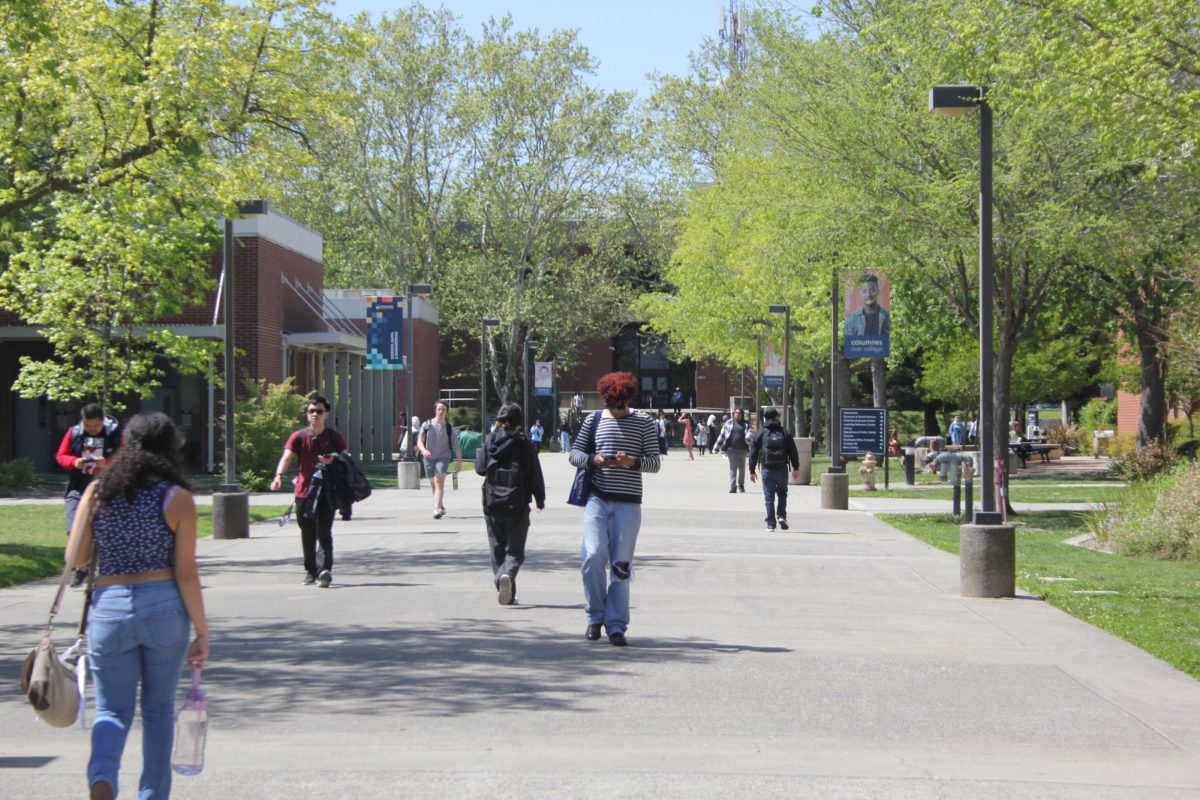It’s been five years since the world experienced a global pandemic due to an outbreak of COVID-19 that put social distancing guidelines into place and forced the closure of local businesses and colleges in an effort to curb the spread of the infection.
We experienced many unprecedented events, such as asynchronous learning and mask mandates that were implemented by the Centers for Disease Control and Prevention.
Five years have since passed but the ripple effects of COVID-19 are still evident in our society. The Connection asked the campus how COVID-19 still affects their lives today.
Mehdi Sougrati, a 19-year-old biology major, said there were benefits during the pandemic, as well as downsides.
“Covid happened in different times of people’s lives. For me, that happened to be the time when I was in high school and I felt like that was the most growth I’ve had in my life, it definitely made me mature,” Sougrati said. “I feel like people connected a lot more through TikTok during COVID, but I felt like there was also a lack of physical connection.”
Thanks to technological advancements, such as Zoom and online classes, education has become a lot more accessible, Sougrati said.
“Asynchronous classes align with my schedule really well and I’m sure with many other students,” he said. “They definitely cater towards somebody’s schedule and I think that’s the biggest thing. Scheduling has definitely improved with COVID.”
Cosumnes River College communication studies professor, Dr. Tanika Byrd said the pandemic and introduction of classes being fully online was a learning curve that made her reevaluate who she is as an instructor. As education became more accessible, Byrd raised concerns about students being able to earn a degree without ever setting foot on campus. It also raises the question of whether or not it’s possible to build community and network through distance learning.
A 20-year-old biochemistry major, Zelikha Amiri said the pandemic affected her life in different ways.
“I learned during the pandemic distance learning, online classes, managing my time, being on top of my work and discipline itself,” she said.
Amiri said it was hard for her not being able to socialize with her family and friends and the hardest instance of her quarantining would be not being able to spend more time with her aunt before she passed away.
Amiri said she misses how, before the pandemic, people didn’t live with constant fear and anxiety about catching diseases
“Pre-pandemic, I felt like I was much less aware in a way, but like in a good way,” said Sougrati. “I feel like now I have to think a lot about certain things. For example, when I open doors sometimes I have to use my shirt [around the handle]. In the past, I didn’t really have to do that.”
Derrol Westbrook, a 19-year-old English major, said as he experienced hearing loss due to reasons unrelated to COVID, the lockdown gave him more time for self reflection and he was able to adapt pretty easily. Although, he said, “COVID definitely negatively impacted society.”
The pandemic as a result of the COVID-19 outbreak showed us that change is inevitable, but it also reminded us that as a society we’re constantly moving forward, Byrd said.

